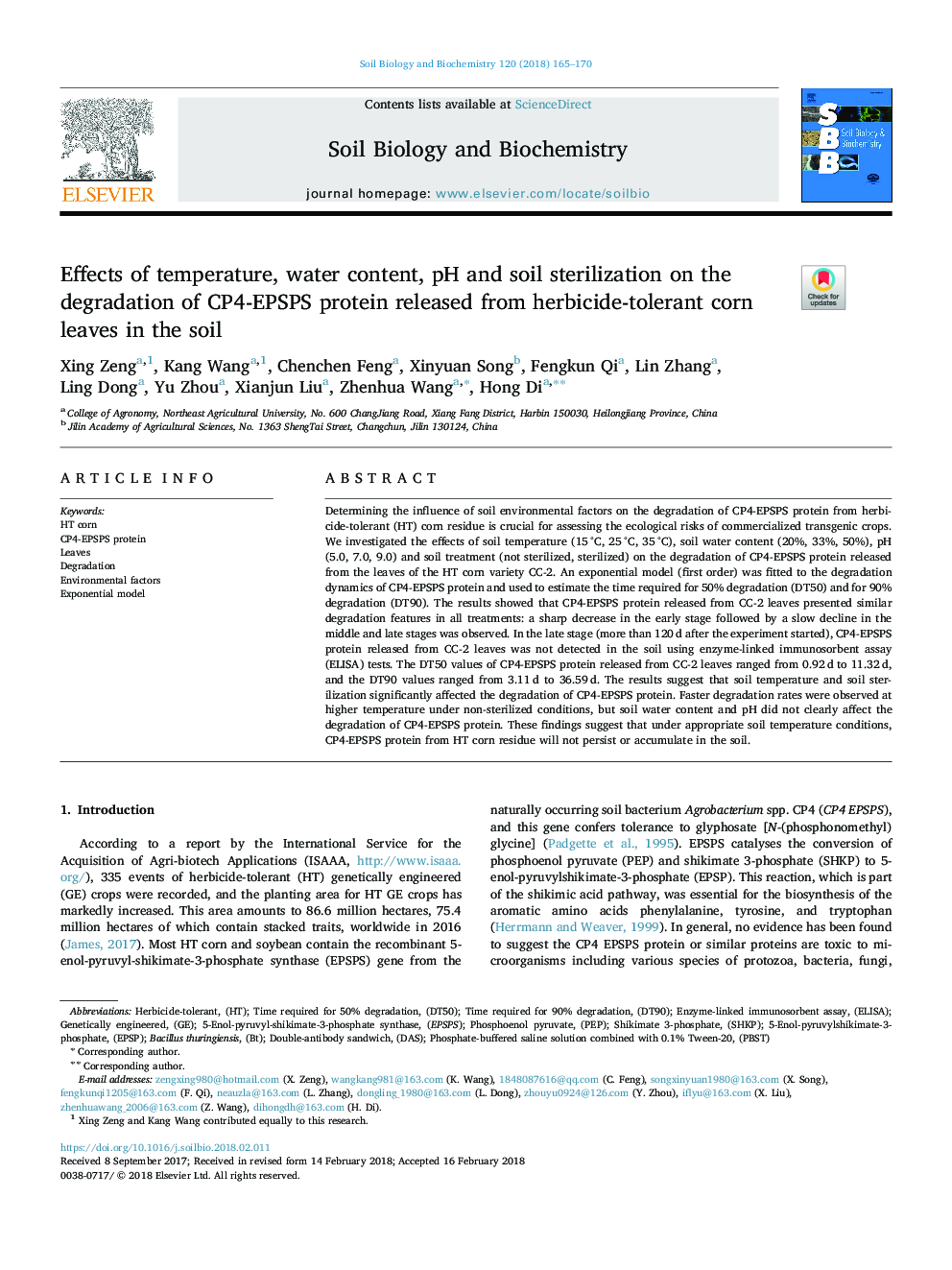| Article ID | Journal | Published Year | Pages | File Type |
|---|---|---|---|---|
| 8362816 | Soil Biology and Biochemistry | 2018 | 6 Pages |
Abstract
Determining the influence of soil environmental factors on the degradation of CP4-EPSPS protein from herbicide-tolerant (HT) corn residue is crucial for assessing the ecological risks of commercialized transgenic crops. We investigated the effects of soil temperature (15â¯Â°C, 25â¯Â°C, 35â¯Â°C), soil water content (20%, 33%, 50%), pH (5.0, 7.0, 9.0) and soil treatment (not sterilized, sterilized) on the degradation of CP4-EPSPS protein released from the leaves of the HT corn variety CC-2. An exponential model (first order) was fitted to the degradation dynamics of CP4-EPSPS protein and used to estimate the time required for 50% degradation (DT50) and for 90% degradation (DT90). The results showed that CP4-EPSPS protein released from CC-2 leaves presented similar degradation features in all treatments: a sharp decrease in the early stage followed by a slow decline in the middle and late stages was observed. In the late stage (more than 120â¯d after the experiment started), CP4-EPSPS protein released from CC-2 leaves was not detected in the soil using enzyme-linked immunosorbent assay (ELISA) tests. The DT50 values of CP4-EPSPS protein released from CC-2 leaves ranged from 0.92â¯d to 11.32â¯d, and the DT90 values ranged from 3.11â¯d to 36.59â¯d. The results suggest that soil temperature and soil sterilization significantly affected the degradation of CP4-EPSPS protein. Faster degradation rates were observed at higher temperature under non-sterilized conditions, but soil water content and pH did not clearly affect the degradation of CP4-EPSPS protein. These findings suggest that under appropriate soil temperature conditions, CP4-EPSPS protein from HT corn residue will not persist or accumulate in the soil.
Keywords
Related Topics
Life Sciences
Agricultural and Biological Sciences
Soil Science
Authors
Xing Zeng, Kang Wang, Chenchen Feng, Xinyuan Song, Fengkun Qi, Lin Zhang, Ling Dong, Yu Zhou, Xianjun Liu, Zhenhua Wang, Hong Di,
